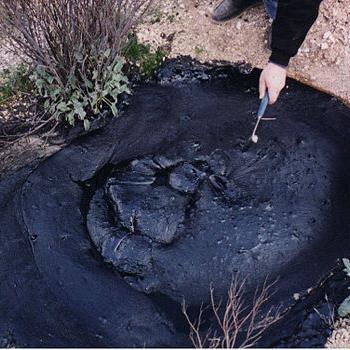
Atheist anti-theist polemicist Jonathan MS Pearce wrote in his screed, “Debunking the Exodus II: A Ridiculous Story with Ridiculous Claims” (5-19-21):
They came out of the Sinai Peninsula to take over cities and take their homeland away from the Canaanites. Which was nice. [Little to absolutely no evidence of this.]
The red font is his own. He explains that “writing in red” signifies why he thinks “the claim is entirely improbable”.
As usual, Jonathan leaves himself wide open to refutation, provides no scholarly back-up (I guess we are supposed to stand in awe of his bald claims regarding Israeli archaeology, as if they couldn’t possibly be disputed by anyone), and almost makes the elementary debate mistake of claiming a “universal negative.”
Joshua’s Altar on Mt. Ebal (?) / Shechem
I wrote about one strong piece of archaeological evidence in 2014, right before I visited Israel: Joshua’s Altar on Mt. Ebal: Findings of Recent Archaeology (7-22-14). The article is very extensive, but to briefly summarize: Moses wrote about a future altar on Mt. Ebal, which is near the present city of Nablus in the West Bank (biblical Shechem). Joshua 8:30-35 describes it. Sure enough, there is a stone structure up there that seems to look very much like an ancient Israelite altar (the design of which is described in the Bible). Pottery sherds on the site were dated to the early part of Iron Age 1 (1220-1000 B.C.): precisely the period in biblical chronology during which the Israelites conquered Canaan. The primary excavator, Dr. Adam Zertal, wrote:
[T]the bones, which were found in such large quantities in the filling, were sent for analysis to the zoology department of the Hebrew University in Jerusalem. The bones proved to be from young male bulls, sheep, goats and fallow deer. . . . The first chapter of Leviticus describes the animals that may be offered as sacrifices. A burnt offering must be a male without blemish (Leviticus 1:3). It may be a bull (Leviticus 1:5) or a sheep or a goat (Leviticus 1:10). The close match of the bones we found in the fill with this description in Leviticus 1 was a strong hint as to the nature of the structure we were excavating.*. . . 942 bones were examined, representing 50-100 specimens. These were attributed to four kinds of animals: goats, sheep, cattle, and fallow deer. The latter is a light-spotted animal which inhabited the woodlands of our country in antiquity. Examination of the sex and age of the animals revealed that all those that could be diagnosed were young males, approximately one year old. This correlates remarkably with the laws of sacrifice in the book of Leviticus [1:1-3] . . .*With respect to the Mt. Ebal altar, . . . all the scientific evidence fits very well with the Biblical description. The three main factors that correlate precisely are the period, the nature of the site, and the location. (“Has Joshua’s Altar been Found on Mount Ebal?”, Biblical Archaeology Review XI [1985], pp. 26-44)
Reputable scholars have suggested that the entire story of the conquest is nothing more than a later, etiological tradition which sets out to account for various manifestations in the light of mythological traditions and folklore. Recent extensive archaeological surveys of the central hill country, however, reveal clearly the process of Israelite settlement as a major settlement movement of the era (1250-1100 b.c.e.). Hundreds of newly-founded, small settlements were established within a short period throughout the hilly allotments of the tribes of Manasseh, Ephraim and Benjamin. The settlers used a characteristic type of pottery and their houses were generally built on a three- or four-room plan.
Joshua 11:10-13 (RSV) And Joshua turned back at that time, and took Hazor, and smote its king with the sword; for Hazor formerly was the head of all those kingdoms. [11] And they put to the sword all who were in it, utterly destroying them; there was none left that breathed, and he burned Hazor with fire. [12] And all the cities of those kings, and all their kings, Joshua took, and smote them with the edge of the sword, utterly destroying them, as Moses the servant of the LORD had commanded. [13] But none of the cities that stood on mounds did Israel burn, except Hazor only; that Joshua burned.
In the Late Bronze Age Hazor was the largest city and the most dominant city-state in Canaan. This has been confirmed both by the
archaeology and by several ancient historical sources. . . .*In Yadin’s excavations the areas where Late Bronze II – Iron Age I excavations took place are Areas A, B, BA, all of them in the Upper
City. A Late Bronze II level was also found in Areas H and 210/A1 in the Lower City. The large Late Bronze Age city (Strata XV-XIII) was totally destroyed at the end of the period, probably in the second third of the 13th century. . . .*The question of who destroyed Canaanite Hazor and who were the inhabitants of the first Iron Age town is controversial. Following Yadin’s project it seemed clear that both were Israelites. Aharoni claimed, the same as Yadin, that, “the total destruction of Hazor and the attempted Israelite settlement conforms well to the biblical tradition that the city was demolished by the Israelites”. . . .*According to Ben -Tor, the most probable possibility is the Israelites.*Rafael Frankel, who recently carried out surveys in Upper Galilee [see the book], came to the same conclusion. He maintains that “in the case of the conquest of Hazor too, the archaeological finds ostensibly correlate with the biblical description: a Canaanite city was totally destroyed and a small Iron I village was built upon its ruins.” (pp. 230-231, 233-234)
Amnon Ben-Tor (born 1935, Hebrew: אמנון בן-תור) is an Israeli archaeologist and professor emeritus of The Hebrew University of Jerusalem. He is known for his excavations of Tel Hazor, and for his middle of the road approach to biblical validity considering the unified kingdom of David and the conquest of the land of Israel as probably true, though shaped by theology. In 2019 he was awarded the Israel Prize for archaeology. (Wikipedia)
Yigael Yadin, original name Yigael Sukenik, (born March 21, 1917, Jerusalem—died June 28, 1984, H̱adera, Israel), Israeli archaeologist and military leader noted for his work on the Dead Sea Scrolls. Yadin, the son of an archaeologist, was educated at Hebrew University (M.A., 1945; Ph.D., 1955). He was a member of the Haganah military organization from 1932 to 1948 and served as chief of the general staff of the Israel Defense Forces from 1949 to 1952. He was also deputy prime minister, 1977–81. Yadin, who was a leader of major archaeological expeditions in Israel, including those at Haẓor (1955–58; 1968), the Dead Sea Caves (1960–61), and Masada (1963–65), became professor of archaeology at Hebrew University in 1959. He received the laureate of Israel prize (1956) and the Rothschild humanities prize (1964). (Encyclopedia Britannica)
Yohanan Aharoni (Hebrew:יוחנן אהרוני)(7 June 1919 – 9 February 1976) was an Israeli archaeologist and historical geographer, chairman of the Department of Near East Studies and chairman of the Institute of Archaeology at Tel-Aviv University. . . . Aharoni studied archaeology at the Hebrew University of Jerusalem and began to teach there in 1954. By 1966, he became a professor at the university. However, in 1968, he moved to Tel-Aviv University and became chairman of the Department of Near East Studies and chairman of the Institute of Archaeology. Aharoni participated in many excavations, including Ramat Rachel, Tel Arad, Tel Be’er Sheva, Tel Hazor and Lachish. He also studied ancient roadways in the Negev, and participated in the discovery of the Bar Kokhba caves while surveying and excavating the Dead Sea region in 1953. (Wikipedia)
David Ussishkin (Hebrew: דוד אוסישקין; born 1935) is an Israeli archaeologist and professor emeritus of archaeology. . . . He studied archaeology and Jewish History at the Hebrew University of Jerusalem between 1955 and 1966. Received his B.A. in 1958, his Master of Arts degree in Archaeology and Jewish History in 1962 (with distinction) and his Ph. D. in 1966. His Doctoral Thesis on “The Neo-Hittite Monuments, their Dating and Style” was written under the guidance of professor Yigael Yadin.[2][3] Beginning in 1966 and until his retirement in 2004 he taught archaeology of Israel and Hittite art at the University of Tel Aviv, receiving full professorship in 1985. (Wikipedia)
***
Lachish
Joshua 10:31-32 And Joshua passed on from Libnah, and all Israel with him, to Lachish, and laid siege to it, and assaulted it: [32] and the LORD gave Lachish into the hand of Israel, and he took it on the second day, and smote it with the edge of the sword, and every person in it, as he had done to Libnah.
Lachish was one of the most important city-states in southern Canaan at that time. . . . Level VII, dated to the 13th century BCE, was destroyed by fire. . . .*According to Ussishkin, “the biblical description (in Josh. 10:31-32) fits the archaeological data: a large Canaanite city destroyed by fire; absence of fortifications, enabling the conquest of the city in a swift attack; and complete desertion of the razed city explained by the annihilation of the populace. . . .*Comparing the results of Hazor and Lachish a similar story can be found, although there is a little difference in the date. In both sites a strong Late Bronze Age city collapsed and the poor Iron Age I settlement appears after the destruction, that is, soon or after the occupational gap. Later the Israelite Iron Age II city is built on the site. The destruction of Hazor is dated to the 13th century and Lachish in the middle or last part of the 12th century. The next habitation starts at Hazor probably in 11th century and at Lachish in 10th century. (Junkkaala, ibid., pp. 235-236, 238)
Judges 1:22-25 The house of Joseph also went up against Bethel; and the LORD was with them. [23] And the house of Joseph sent to spy out Bethel. (Now the name of the city was formerly Luz.) [24] And the spies saw a man coming out of the city, and they said to him, “Pray, show us the way into the city, and we will deal kindly with you.” [25] And he showed them the way into the city; and they smote the city with the edge of the sword, but they let the man and all his family go.*The last Late Bronze Age town was destroyed by fire. According to Albright and Kelso, this took place sometime about 1240-1235 BCE. They do not tell how they arrived at this date, possibly it comes from Yadin’s dating about destruction of Hazor. . . .*Some later scholars have agreed with this conclusion. After the destruction of a Late Bronze Age city the first Iron Age I occupation was poor and quite different in material culture. According to Amihai Mazar, “this is one of the few cases where archaeology might confirm a conquest tradition”. Finkelstein in 1988 also agreed that at Bethel there was a prosperous Canaanite city replaced by the Israelites at the beginning of Iron Age I. He added, however, that the date of the destruction had mainly been based on historical, nonarchaeological considerations. According to Finkelstein’s study in 1988, Bethel is one of the earliest Israelite settlement sites, together with Mount Ebal, Giloh, Izbeth Sartah, Beth-zur, Tell el-Ful, and Tell en-Nasbeh.*Comparison with Hazor gives similar results. The dating of Late Bronze Age Bethel’s collapse is not exact, but it may be around the same as the one at Hazor, late in the 13th century BCE. The material culture of the Iron Age I inhabitants seems to be quite different from the previous one. (Junkkaala, ibid., pp. 238-239)
This study has included 29 sites, which have been divided into two main categories: the “conquered cities” and the “unconquered cities”. The first category has been subdivided into three groups: excavated cities, surveyed cities and others. In all of the “unconquered cities” excavations have been carried out.*Two questions were asked concerning each of the sites: were they inhabited in the periods in question (Late Bronze Age II, Iron Age I and II), and can we know something about the cultural backgrounds of the inhabitants. In most cases it could be determined that the culture was influenced either by the Coastal Plain culture (C) or the Hill Country culture (H). The third possibility was the Sea People culture (mostly Philistines, P). . . .*The list of the “conquered cities” contains 19 sites. 12 of them have been excavated, 5 have been surveyed and 2 neither have been carried out. In 10 of the 12 excavated cities C-culture dominated in the Late Bronze Age II and in 3 of them (Ai, Arad and Makkedah) there was no identifiable settlement in that period. The cultural change between the Late Bronze Age II and Iron Age I can be seen in all of the sites, although in some it is not very obvious. This change does not happen simultaneously, in Ai the H-culture begins in Iron Age I as in almost all the other cities in this group, but Arad and Makkedah have no settlement until Iron Age II.*In 8 of the 12 excavated sites the new settlers seem to represent H culture. . . .*The list of the “unconquered cities” contains 10 sites, all of which have been excavated. C-culture dominated in all the sites in Late Bronze Age II. In the Iron Age I the same culture (C) has been found in at least 4 of them and P-culture or its variations in 5 of them (Gezer, Jarmuth, Dor, Aphek, and Achsaph). . . .*The conspicuous difference between the archaeology of the “conquered” and the “unconquered” cities is that in the former ones the H-culture begins during Iron Age I (although not commencing simultaneously), and in the latter it only starts in Iron Age II. (pp. 299-300)
The sudden emergence of hundreds of new sites by pastoral nomads in Iron I contrasts sharply with the reduced number of sites in LB in comparison with MB. Kochavi [72] wrote: “During the Late Bronze Age, and especially towards its end, new small unfortified settlements are known. However, with the beginning of the Iron Age, they suddenly appear by the hundreds.” I. Finkelstein [73] elaborates:
Altogether only 25-30 sites were occupied in the Late Bronze II (c. 1400-1200 BC) between the Jezreel and Beer-Sheva valleys. Human activity was confined mainly to the large central tells…. It is highly unlikely, therefore, that many additional Late Bronze sites will be discovered in the future, because it is difficult to overlook such major settlements. Other regions were also practically deserted during the Late Bronze period…. In Iron I there was a dramatic swing back in the population of the hill country. About 240 sites of the period are known in the area between the Jezreel and Beer-Sheva valleys; 96 in Manasseh, 122 in Ephraim… and 22 in Benjamin and Judah. In addition, 68 sites have been identified in Galilee, 18 in the Jordan Valley and dozens of others on the Transjordanian plateau.
In addition, numerous, widespread, and catastrophic destructions separate the markedly different and more sophisticated “Canaanite” Late Bronze Age, and the cruder “Israelite” Iron Age. Moving from north to south these cities are, Hazor (Tell el-Qedah), Megiddo (Tell el-Mutesellim), Succoth (Tell Deir Alla), Bethel (Beitin), Beth Shemesh (Tell er-Remeileh), Ashdod (Esdud), Lachish (Tell ed-Duweir), Eglon (Tell el-esi), and Debir or Kiriath-Sepher (Tell Beit Mirsim or Khirbet Rabud). Of these cities, four are specifically said to have been destroyed by Joshua: Hazor (Josh 11:10-11), Lachish (Josh 10:31-33), Eglon (Josh 10:34-35), and Debir (Josh 10:38-39); Bethel is said to have been taken by the house of Joseph (Judg 1 :22-26).
The force of this argument is further enhanced by certain negative evidence. Some cities which the biblical sources exclude from the conquests have on excavation shown no signs of destruction in the thirteenth century.
These include Gibeon (el-Jib) (Joshua 9), Taanach (Tell Taaannak) (Judg 1:27), Shechem (Tell Balatah) (Josh 24), Jerusalem (el-Quds) (Josh 15:63; 2 Sam 5:6-9), Beth-shean (Tell el-husn) (Judg 1:27-28), and Gezer (Tell Jezer) (Josh 10:33). Following the destructions at Hazor, Succoth, Bethel, and Debir (possibly also Gezer and Ashdod), unfortified and architecturally simple, even crude, settlements appear. (pp. 197-198)
[72] M. Kochavi, “The Israelite Settlement in Canaan in the light of Archaeological Surveys,” Biblical Archaeology Today (Jerusalem: Israel Exploration Society, 1985), 55.
[73] I. Finkelstein, The Archaeology of the Israelite Settlement (Jerusalem: Israel Exploration Society 1988), 39.
*
Archaeology is often a speculative and inexact science. But I submit that there is enough verification in the above information to establish that the Bible was (yet again) substantially accurate in its claims, and certainly enough to counter Pearce’s claim that there is “Little to absolutely no evidence” of Joshua’s conquests.


























